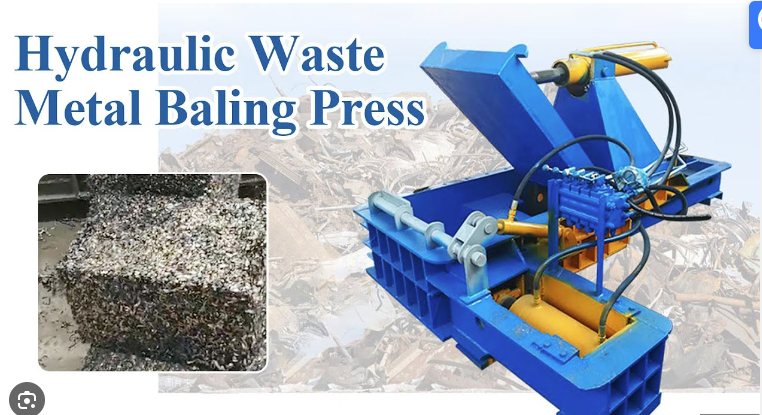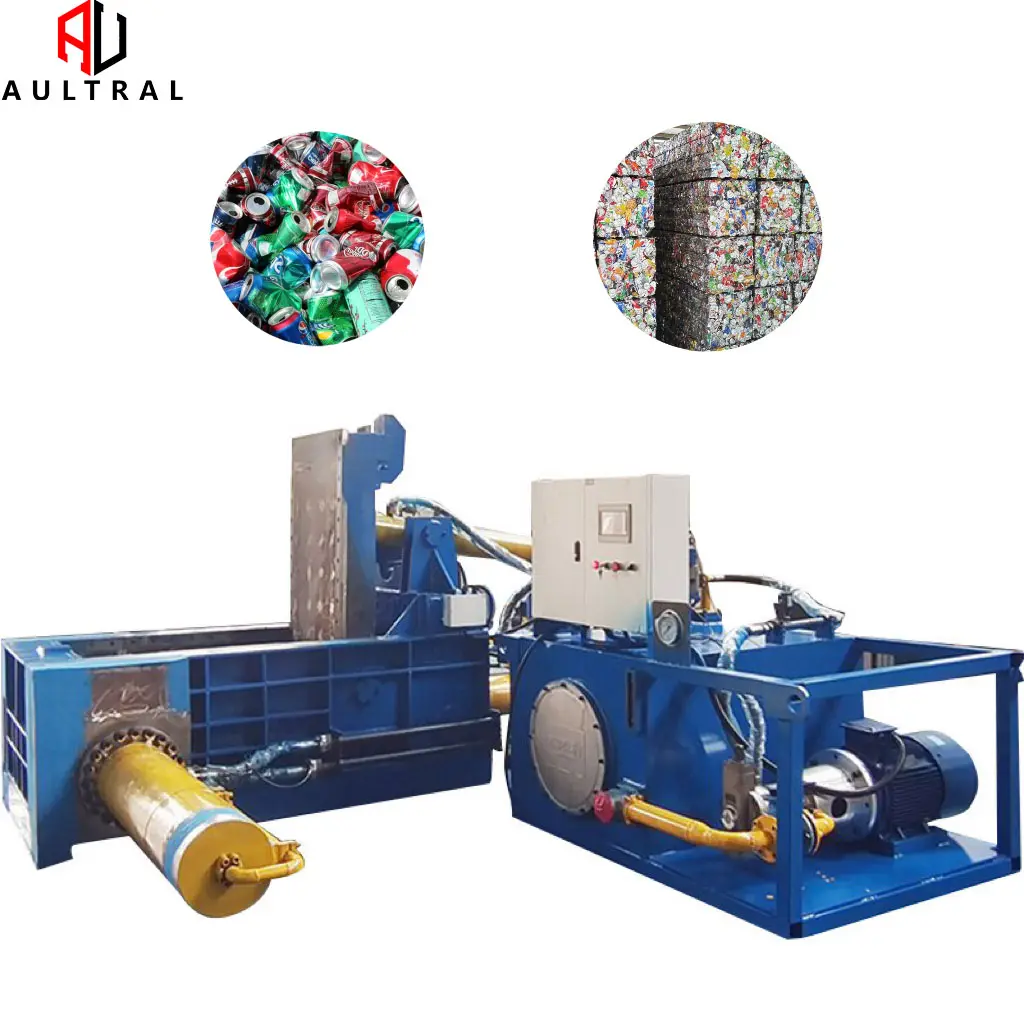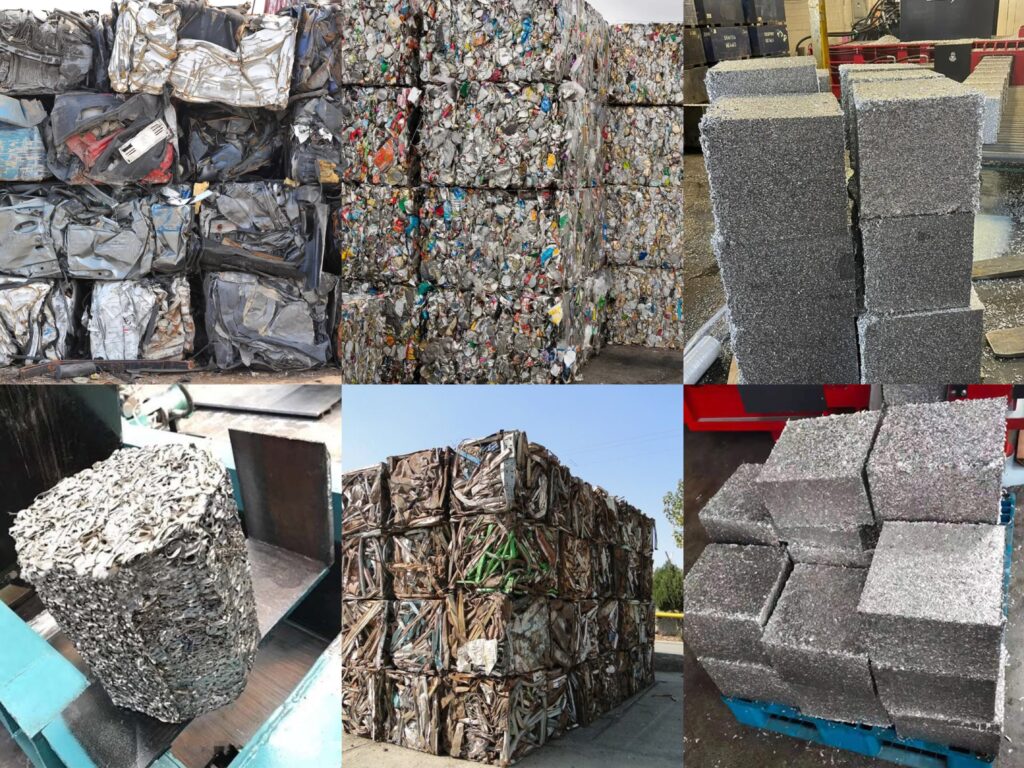Maximizing Efficiency in Metal Recycling with a Scrap Metal Baler
In the world of scrap metal recycling, maximizing efficiency and reducing operational costs are paramount to staying competitive and sustainable. One essential piece of equipment that helps achieve these goals is the scrap metal baler. A scrap metal baler is a powerful machine used to compress and bundle scrap metal into compact, uniform bales for easy handling, storage, and transportation. Whether you’re managing a scrap yard, a recycling facility, or an industrial operation, investing in a high-quality scrap metal baler can significantly enhance your productivity and profitability.

What is a Scrap Metal Baler?
A scrap metal baler is a hydraulic machine designed to compress metal scrap, such as aluminum, steel, copper, and iron, into compact, manageable bales. These bales are tightly bound with steel wire or straps, making them easier to transport and store. The baling process not only saves space but also helps to increase the value of scrap metal by providing a more organized and uniform product, which is highly valued by recycling centers and metal manufacturers.
The baler typically operates by using hydraulic force to compress the metal into the desired shape. The resulting bales are uniform in size, making them easier to handle during the next stages of recycling or resale.
Key Features of a Scrap Metal Baler
-
High Compression Power
Scrap metal balers are equipped with powerful hydraulic systems that generate high pressure to compress metal scrap into tightly packed bales. This high compression significantly reduces the volume of scrap metal, making it easier to store and ship. Depending on the size of the baler, scrap can be compressed into dense bales, reducing storage requirements by up to 90%. -
Durable Construction
Designed to withstand the heavy-duty demands of metal recycling, scrap metal balers are built with strong, high-quality materials. The robust construction ensures that the machine can handle large volumes of scrap metal without the risk of breakdowns, even in harsh working environments such as scrap yards or industrial plants. -
User-Friendly Operation
Many modern scrap metal balers feature intuitive, easy-to-use controls that simplify the baling process. With automated features such as automatic bale ejection, wire tying, and pressure control, operators can manage the baling process with minimal effort. This not only boosts productivity but also reduces the risk of human error, making operations more efficient. -
Energy Efficiency
Scrap metal balers are designed to optimize energy consumption while providing high output. The hydraulic systems used in these machines are energy-efficient, offering high-performance compression while keeping operational costs down. This is particularly important for businesses looking to reduce their energy costs and increase overall profitability. -
Versatility
Scrap metal balers are versatile machines capable of handling a wide range of scrap metals, including ferrous and non-ferrous materials. Whether you’re processing aluminum cans, steel scrap, copper wires, or mixed metal waste, the scrap metal baler can be adapted to suit your specific needs, making it an ideal solution for a variety of recycling applications.
Benefits of Using a Scrap Metal Baler
-
Space Optimization
One of the primary benefits of using a scrap metal baler is the efficient use of space. The compression of scrap metal into compact bales allows businesses to store more material in less space, reducing storage costs. This is especially important for recycling centers or scrap yards where floor space is at a premium. -
Increased Profitability
By creating uniform, high-quality bales, businesses can improve the value of their scrap metal. Recycling facilities and metal manufacturers often pay more for bales that are properly compacted and uniform in size. Additionally, smaller, denser bales can be transported more efficiently, reducing transportation costs. -
Improved Safety
The process of manually handling loose scrap metal can pose safety hazards for workers. Scrap metal balers help reduce the risk of injuries by automatically compacting the scrap into bales, which are easier to handle, lift, and transport. The automated nature of modern balers reduces the need for manual labor, further improving workplace safety. -
Environmental Benefits
Recycling scrap metal helps conserve natural resources and reduce the environmental impact of mining and metal production. Using a scrap metal baler contributes to sustainability by making metal recycling more efficient and environmentally friendly. Properly compacted scrap metal also ensures that more material can be processed and reused, further promoting the circular economy. -
Faster Processing
The ability to automate and speed up the baling process means that scrap metal can be processed faster, leading to increased throughput. This allows recycling centers to handle larger volumes of scrap metal in a shorter amount of time, boosting overall productivity and helping businesses meet growing demand for recycled metal.
Applications of Scrap Metal Balers
-
Scrap Metal Recycling Centers
Scrap metal balers are commonly used in recycling centers to process large quantities of scrap metal. The compacted bales are easier to transport to metal manufacturers for further processing or resale, making them an essential tool for the recycling industry. -
Industrial Plants
Manufacturing plants that produce metal waste, such as car parts, appliances, and machinery, can use scrap metal balers to manage and recycle their waste. By compressing metal scrap into bales, companies can reduce waste disposal costs while contributing to sustainability. -
Automotive and End-of-Life Vehicle (ELV) Processing
Scrap metal balers are also used in the automotive industry to process end-of-life vehicles (ELVs). After vehicles are dismantled, the remaining metal components can be compacted into bales, making it easier to transport and recycle the materials. -
Construction and Demolition
Construction and demolition projects generate large amounts of scrap metal, including steel beams, rebar, and aluminum. A scrap metal baler helps compact this waste, making it more manageable and easier to recycle.


